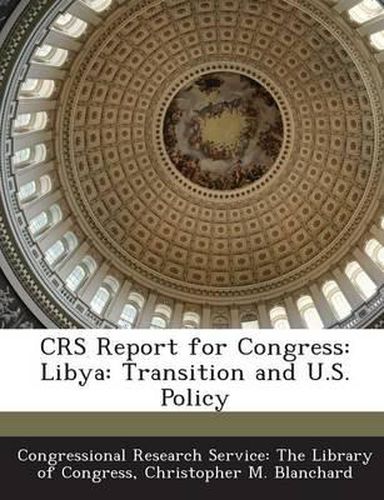Readings Newsletter
Become a Readings Member to make your shopping experience even easier.
Sign in or sign up for free!
You’re not far away from qualifying for FREE standard shipping within Australia
You’ve qualified for FREE standard shipping within Australia
The cart is loading…






After more than 40 years of authoritarian repression and eight months of armed conflict, fundamental political change has come to Libya. The killing of Muammar al Qadhafi on October 20 and the declaration of Libya’s liberation by the interim Transitional National Council on October 23 marked the end of the Libyan people’s armed revolt and the formal beginning of the country’s transition to a new political order. Overcoming the legacy of Qadhafi’s rule and the effects of the recent fighting is now the principal challenge for the Libyan people, the TNC, and the international community. The transition period may prove to be as complex and challenging for Libyans and their international counterparts as the recent conflict. Immediate tasks include establishing and maintaining security, preventing criminality and reprisals, restarting Libya’s economy, and taking the first steps in a planned transition to democratic governance. In the coming weeks and months, Libyans will face key questions about basic terms for transitional justice, a new constitutional order, political participation, and Libyan foreign policy. Security challenges, significant investment needs, and vigorous political debates are now emerging.
$9.00 standard shipping within Australia
FREE standard shipping within Australia for orders over $100.00
Express & International shipping calculated at checkout
After more than 40 years of authoritarian repression and eight months of armed conflict, fundamental political change has come to Libya. The killing of Muammar al Qadhafi on October 20 and the declaration of Libya’s liberation by the interim Transitional National Council on October 23 marked the end of the Libyan people’s armed revolt and the formal beginning of the country’s transition to a new political order. Overcoming the legacy of Qadhafi’s rule and the effects of the recent fighting is now the principal challenge for the Libyan people, the TNC, and the international community. The transition period may prove to be as complex and challenging for Libyans and their international counterparts as the recent conflict. Immediate tasks include establishing and maintaining security, preventing criminality and reprisals, restarting Libya’s economy, and taking the first steps in a planned transition to democratic governance. In the coming weeks and months, Libyans will face key questions about basic terms for transitional justice, a new constitutional order, political participation, and Libyan foreign policy. Security challenges, significant investment needs, and vigorous political debates are now emerging.